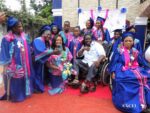Liberian Women with Disabilities Overcome Hardship as KDE Africa Graduates 16 in Tailoring, ICT
By Boniface Ihiasota
KDE Disability Africa Foundation has Saturday graduated 16 persons under its KDE Vocational Training Programme in tailoring, fashion designing and Information and Communication Technology (ICT).
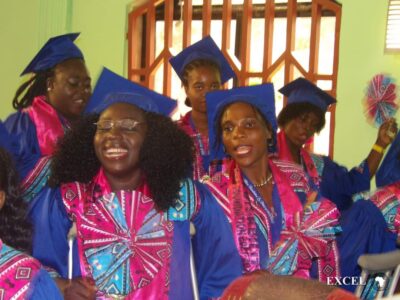 The graduates which included 11 women living with physical disabilities received their certificate of completion and honour in grand style.
The graduates which included 11 women living with physical disabilities received their certificate of completion and honour in grand style.
The Guest Speaker, Leona Swaray – Project Coordinator, Mental Health Program, The Carver Center, embraced women empowerment and encouraged the students to utilize their skills for the betterment of themselves and family.
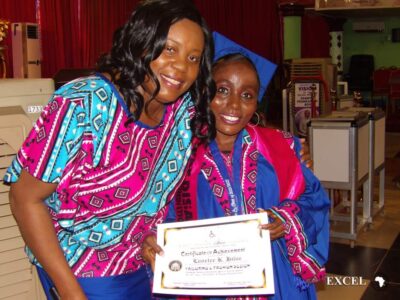 The President of KDE Disability Africa Foundation, Kimma Wreh, while delivering her remarks charged the celebrants, “Never to give up,” and brace up in the pursuit of their respective higher educations.
The President of KDE Disability Africa Foundation, Kimma Wreh, while delivering her remarks charged the celebrants, “Never to give up,” and brace up in the pursuit of their respective higher educations.
Wreh, who flew from Houston Texas, United States also reminded them to always remember where they come from and imbibe the spirit of giving back to the society, most especially, the less privileged.
Earlier, Both Kimma Wreh and Boniface Ihiasota had donated three (3) sewing machines to the top KDE graduates and blessed others with clothes.
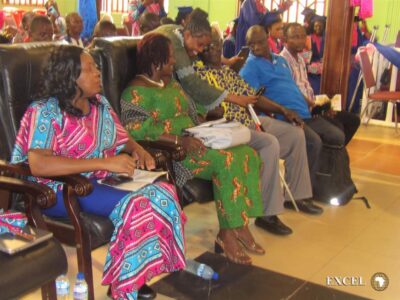 They also donated five (5) bags of rice and clothes to the National Union of Disabled Organizations Liberia (NUOD).
They also donated five (5) bags of rice and clothes to the National Union of Disabled Organizations Liberia (NUOD).
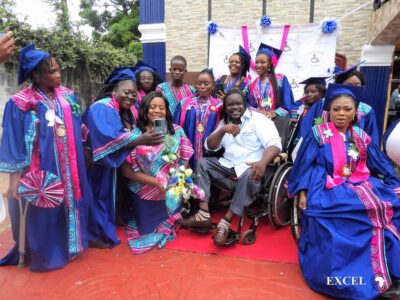 The graduates are Jochebad Morweh, Edwina Jones, Leona Karmue, Mercy S. Jallah, Naomi Brown, Oretha Sumo, Lovetee K. Jules, Ruth R. Gbawar, Sarah Wallace, and Olive K. Metzger.
The graduates are Jochebad Morweh, Edwina Jones, Leona Karmue, Mercy S. Jallah, Naomi Brown, Oretha Sumo, Lovetee K. Jules, Ruth R. Gbawar, Sarah Wallace, and Olive K. Metzger.
Others include Jessica Dennis, Birgitta T. Kart, Helena B. Dainsee, Rachel J. Gbeh, Bendu Murvee, and Janet J. Ekeanya.
Certificate of honor were bestowed to the top 3 graduates: Ortega Sumo, Sarah L. Wallace, and Lovetee K. Julue.
KDE Disability Africa Foundation is a 501C3 non-profit organization (founded in 2015 in the USA and 2017 in Liberia) to improve the lives of people with disabilities especially women and dis-enfranchised youth in Africa and the US by providing basic needs (food, clothing), mobility devices (wheelchairs, crutches, canes), vocational training, and advocating for disability inclusion.






